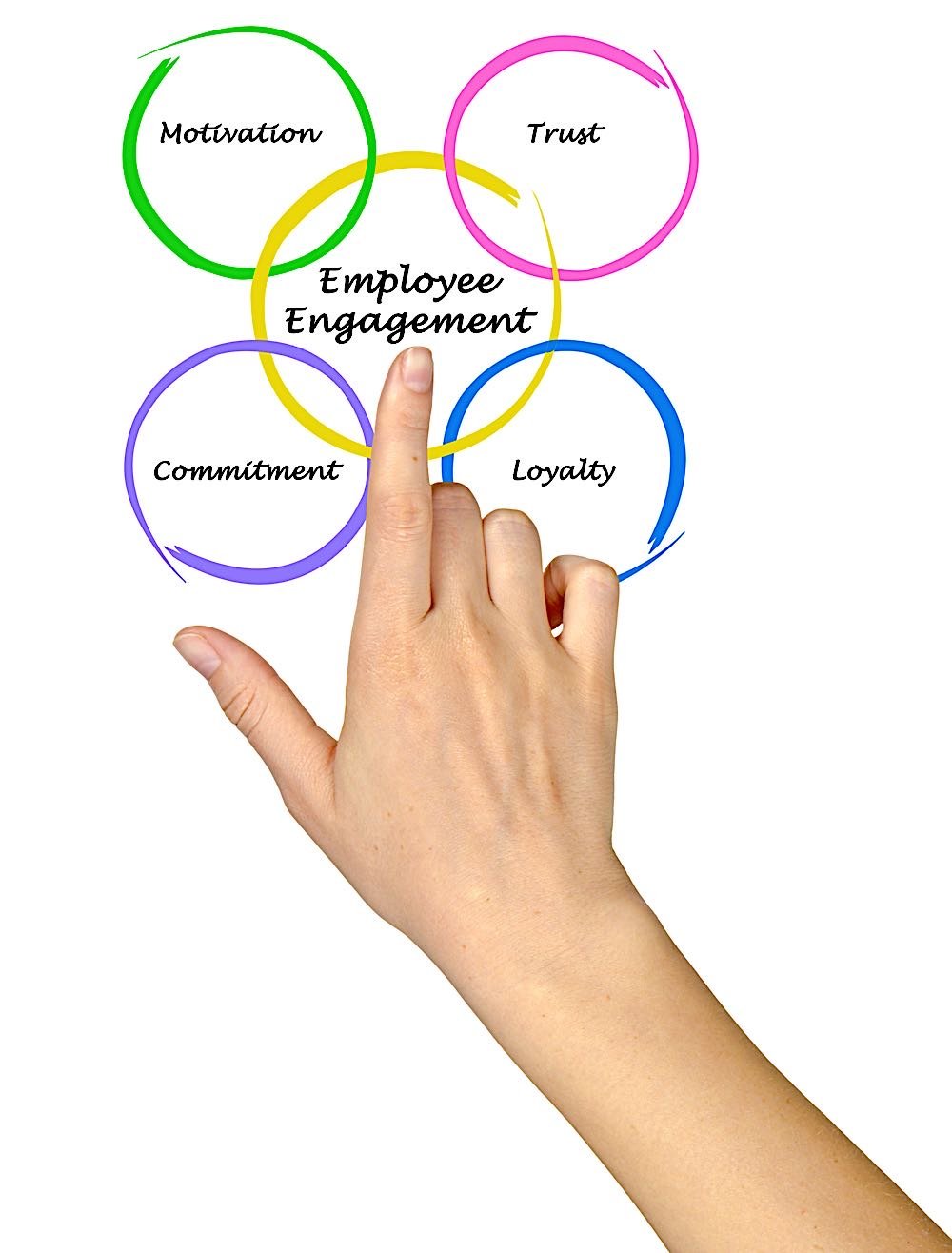
Staff Retention: the Top Employee Loyalty Benefits as Rated by the Employees
One of the top priorities for HR Managers is cultivating employee loyalty. Loyal team members are more engaged, committed, and productive overall. [1] They also tend to stay with a company longer, reducing turnover costs and preserving institutional knowledge. But with hybrid and remote work becoming the norm, nurturing a sense of connection and belonging for staff can be challenging. HR Managers know the matrix of loyalty includes: motivation, trust and commitment, and this seems to be strongly reflected in the results of a recent report.
According to a recent Achievers Workforce Institute (AWI) report, certain policies, tools, and benefits have proven to boost employees’ sense of loyalty.[2] The findings highlighted some less-mainstream benefits such as unlimited vacation, always-on chatbots, and childcare support.

Top Unique Benefits: Unlimited Holidays
AWI’s survey of over 3,500 employees shows unlimited paid time off (PTO) emerging as the single most powerful policy for making workers feel valued by their employers. Employees granted unlimited vacation availability are a sizable 43% more likely to report feeling a strong sense of belonging and connection to their company culture compared to those still laboring under traditional inflexible capped PTO plans. They also self-report 48% higher productivity.

The common misconception is that unlimited plans lead to less time off overall. However, the data shows positive outcomes when leadership empowers people to take time as needed. It comes down to a high-trust culture. When employees feel psychologically safe taking ample leave without judgment or pushback, their loyalty increases in kind.
As AWI’s Chief People and Culture Officer Hannah Yardley explains from these standout results:
“There’s a belief that employees with no set vacation limit take less time off compared to employees given a specific, generous amount such as six weeks. Our data shows that there are positive benefits to unlimited vacation policies. Yet, it is up to leadership to empower managers and individuals to take as much leave as they want or need. This relationship built on psychological safety and trust ultimately influences the amount of time employees take off and an employee’s sense of belonging.”
Accessible Tools For Connection Matter Too
Along with vacation policies, having the right connective tools in place also lifts loyalty.
33% more employees feel higher belonging when there is an “always-on” chatbot or AI assistant available. The convenience and real-time support of chatbots help mimic in-person interactions.
Likewise, purpose-built platforms for employees to connect with coworkers, not only leadership, increase loyalty by 25%. Seamless digital communication paths reinforce social bonds across distributed teams. When people feel connected to peers, engagement thrives.
Another factor placing caretaking strains on many staff is familial obligation. [3] Child care assistance has proven impactful for loyalty and retention. Employees with subsidized child care or on-site facilities have 23% stronger belonging. And for working men and women, the availability of childcare support boosts loyalty by 15% and 29%, respectively. Likewise, access to a digital pharmacy topped the complementary tools list with a 39% increase.
Kumari William, vice president for belonging and diversity at Workday, explains. “Belonging is a fundamental human need that plays a crucial role in shaping our overall well-being and satisfaction, both in personal and professional contexts. When individuals feel a sense of belonging within their workplace, they are more likely to be happier, healthier, and more productive. Moreover, they tend to stay with the company for longer periods, contributing to increased stability and continuity within the organization.”
Replacing mid-level team members can cost up to 150% or more of the departed employee’s salary. [4] Boosting loyalty through these programs leads to a major return on investment in terms of retention alone. And the associated gains in engagement and performance only add to the value.
Inclusive, Personalized Benefits Are The Future
While unlimited vacation, chatbots, and childcare are impactful, the research also highlights the need to personalize. Employees now expect and demand benefits tailored to their needs rather than one-size-fits-all packages.
- Do you have a question for one of our HR Management experts on team loyalty, benefits, or staff retention? Ask the experts at Pivotal>>
Personalizing Benefits
For example, fertility benefits like egg freezing may not resonate with men but increase women’s loyalty by 22%. Caregiving support has a similar imbalanced impact. Benefits like pet insurance or extra vacation may lift the feeling further for staff with disabilities or working parents.
As talent stewards, leaders must examine workforce demographics and amplify benefits accordingly. An inclusive, personalized approach is essential for driving loyalty across diverse teams now and into the future.
When shaping personalized benefits, inclusive access is critical. All employees should have equal and streamlined access to offerings without barriers like confusing paperwork or narrow eligibility windows.
Benefits must be visible and convenient to use. They should work for people’s real lives with minimal friction. If amazing family programs exist on paper but come saddled with tedious approvals, they fail to support loyalty.
According to Abigail Quartey, health consultant at global benefits firm Benefex, via the Reward & Employee Benefits Association (REBA).
“One of the first steps to creating an inclusive benefits package is to ensure that all employees have equal access to it,” she says. “This means re-examining selection processes, eligibility criteria, and communications to ensure they do not inadvertently exclude anyone.”
Leaders Must Model Empathy
In the end, loyalty is driven by emotion. No amount of progressive policies or tools will boost loyalty if employees don’t feel genuine care from management. As management, modeling real empathy, compassion, and flexibility is crucial.
When staff believe their well-being is a priority, they reciprocate with deeper engagement. Fostering this level of care and trust makes otherwise generous benefits achievable. It also supports transparency around needs like mental health, which negatively impact loyalty when stigmatized. [5]
With loneliness and anxiety spiking post-pandemic, emotional intelligence from leadership is a loyalty imperative. Paired with the right inclusive benefits and policies, it forms the foundation for retention.
The Future Workspace
Hybrid-remote work is not fading. To drive loyalty across distributed teams, HR needs to lead the way on trust-based vacation, accessible connective tools, and targeted childcare support. These policies make business sense, with demonstrated increases in productivity and retention tied to higher belonging.
But they must be complemented by inclusive personalization and genuine warmth from management. As leaders aiming for an engaged, loyal workforce prepared for Industry 5.0, getting this combination right is advisable.
Do you have question for our HR Experts?
mini contact
Sources
[1] https://leaders.com/articles/leadership/loyal-employees/
[2] https://www.hrreporter.com/focus-areas/compensation-and-benefits/what-are-the-most-effective-tools-and-benefits-that-drive-belonging/381421
[3] https://hbr.org/2014/07/no-one-should-have-to-choose-between-caregiving-and-work
[4] https://www.simplybenefits.ca/blog/employee-retention-what-is-the-true-cost-of-losing-an-employee#:~:text=An%20entry%2Dlevel%20employee%20turnover,their%20annual%20salary%20to%20replace.
[5] https://www.forbes.com/sites/nazbeheshti/2019/05/08/stigma-about-mental-health-issues-in-the-workplace-exist-heres-what-companies-can-do-about-it/?sh=7446353e31e7


 Our HR solutions experts can recommend the right mix of HR outsourced services to make your entry into Canada easier.
Our HR solutions experts can recommend the right mix of HR outsourced services to make your entry into Canada easier.  Pivotal Employment Management Services co-hires your workforce, simplifying entry of your business in Canada.
Pivotal Employment Management Services co-hires your workforce, simplifying entry of your business in Canada. 
















